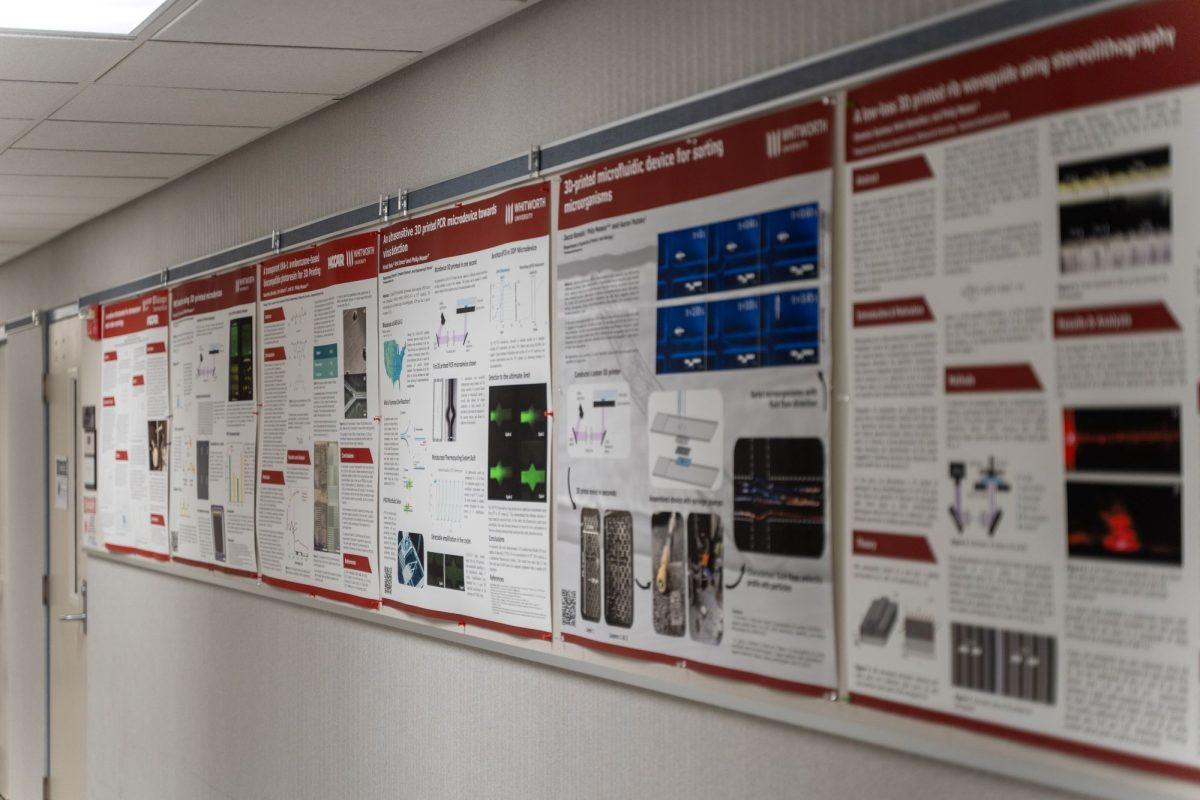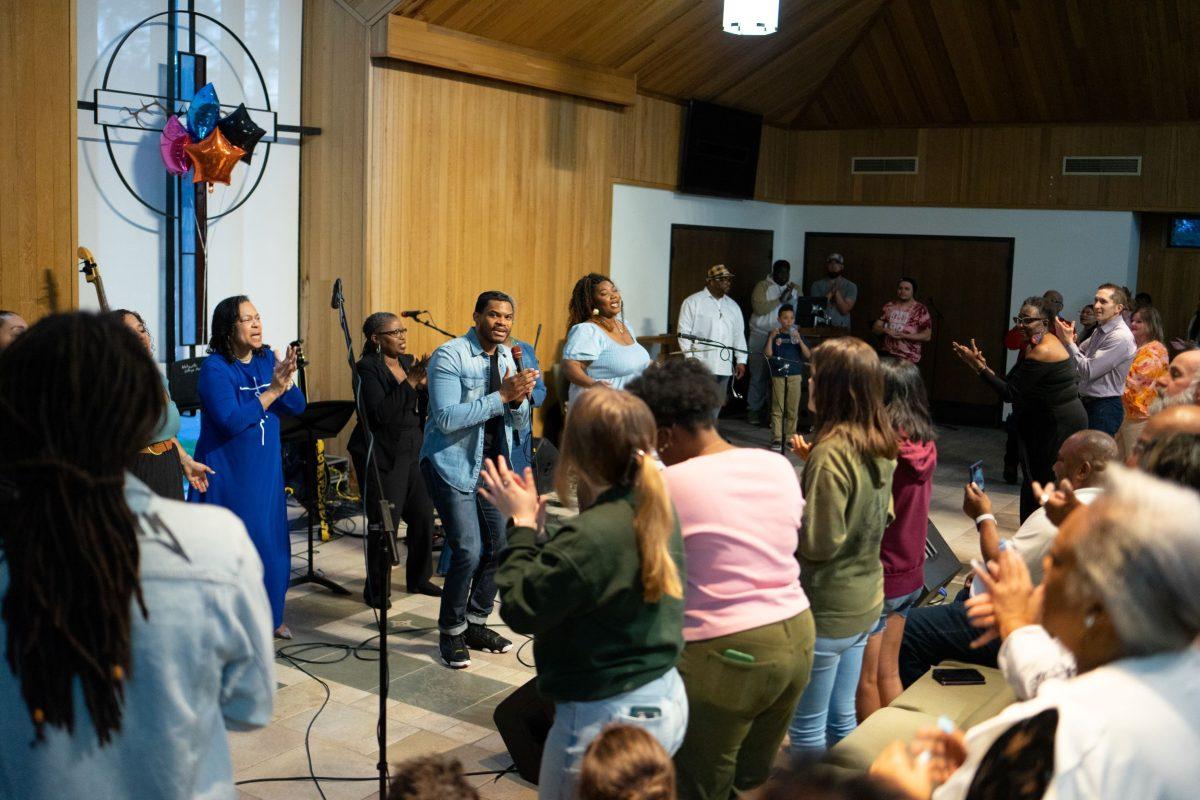For his dissertation, Washington State University professor Marc Robinson focused on the history of student activism in the Northwest and how it connects to the Civil Rights Movement and the Black Power Movement. He was asked by Whitworth professor Lawrence Burnley to share the achievements of the Black Student Union (BSU) on Feb. 19.
“Overall what I was trying to do with the project was connect Washington with this Civil Rights Movement which we typically think is in the South,” Robinson said. “We don’t really talk about connecting the Civil Rights Movement to Washington.”
Being from Seattle, he wanted to investigate how his hometown and state connects to that history. Part of the project was trying to make sense of his own experience and understand more of the past, he said.
“The Civil Rights Movement and the Black Power Movement are two parts of history that don’t get covered a lot, particularly the Black Power Movement. So there was also this interest to explore this part of history that was hidden from me personally,” he said.
The first Black Student Union was organized at San Francisco University in 1966. It spread to the University of Washington in 1967 and was established at Washington State University in 1968.
In short, the BSU was an organization composed of college students. Their goals included hiring diverse faculty and staff, making marginalized voices heard and demanding administration create an Ethnic Studies program.
Robinson found that student activists made impacts in the ’50s and ’60s. In 1961, for example, integrated groups took buses to the southern states to challenge segregation. During one of those trips, students rallying in Mississippi were arrested. In response, BSU activists went down to Mississippi to be jailed with them. Robinson found that at least three of those people were from Seattle.
“Unearthing or recovering these stories where you have these valuable reforms, some of which are still impactful today, help us feel connected to our past,” he said.
In his lecture, Robinson told stories about advancements made by the BSU at colleges in Washington.
The WSU BSU got the administration to establish Black Studies and Ethnic Studies. Due to the efforts of the BSU at the University of Washington, enrollment of African Americans increased by almost 300 percent and faculty and staff by 50 percent. Whitworth had a Black Studies program for a short time, but it does not exist anymore.
Ruth Wabula, a junior attending the lecture, asked Robinson why he thought this sort of activism is not seen today.
“I think what has happened over the last several decades is the context isn’t the same. In an era shaped by the Civil Rights Movement, prominent assassinations, and the military draft into the Vietnam War, all Americans including students were more politically engaged in the late ‘60s and early ‘70s,” he said.
Wabula is looking to pursue Black Studies and Ethnic Studies after she graduates from Whitworth. Prior to the lecture, she was unaware of the role the Black Power Movement played in the history of the Northwest.
“I learned about the Black Power Movement in Seattle, which I didn’t know about, and I’m from there, which makes me mad,” Wabula said. “And that Whitworth had a Black Studies program blows my mind.”
In his lecture, Robinson said students hear little of the Black Power Movement and Civil Rights Movement. When those movements are talked about, they are discussed in their simplistic form, he said.
Additionally, the ’60s are not always portrayed in a positive light, he said. Part of the purpose of his project is to strip away some of that positive and negative nostalgia and expose what really happened.
Students’ reactions to the lecture affirmed Robinson’s assumptions.
“What a lot of people think about the Black Power Movement is the Black Panther and the violence and its kind of sad that many people don’t know what they accomplished in this movement,” prospective student Jacob Lionello said
Robinson’s long-term goal is to increase the awareness that will be a source of pride for Washington residents.
He concluded the lecture saying, “It’s not just a Whitworth problem. It’s a national problem we’ve seen over the decades.”
Contact Rebekah Bresee at [email protected]





